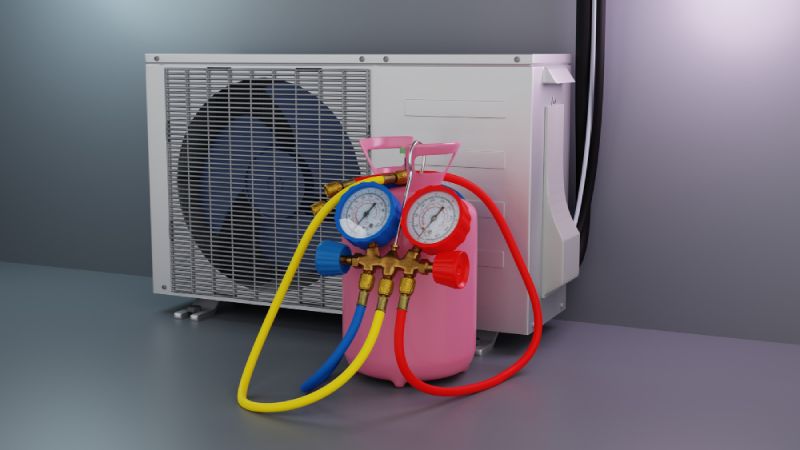The short answer is yes, air conditioning systems in the UK, much like elsewhere, do utilise a specific type of gas, known as refrigerant. However, the term ‘gas’ in this context doesn’t refer to the fuel type such as natural gas or petrol, which might be commonly associated with heating or driving.
The Role of Refrigerant Gas in Air Conditioning
Understanding Air Conditioner Functioning
The key to understanding why air conditioners use gas lies in their mechanism of action. In essence, air conditioning systems function by transferring heat from inside a building to the outside environment.
This heat transfer process relies on the principles of phase conversion, where the refrigerant gas absorbs heat as it transforms from a low-pressure gas to a high-pressure liquid and releases it as it changes back from a high-pressure liquid to a low-pressure gas.
“The refrigerant is essentially the ‘working fluid’ that enables an air conditioner to cool a space effectively.”
Common Types of Refrigerant Gas
In the UK, some of the most commonly used refrigerant gases in air conditioning units are R410A and R32. These gases have largely replaced the older R22 gas, which is no longer used due to its negative impact on the ozone layer.
Understanding the Environmental Impact
While air conditioning systems provide comfort, it’s essential to consider their environmental implications. The gas used in these units has a Global Warming Potential (GWP), which measures how much heat a greenhouse gas traps in the atmosphere.
R32 vs R410A
Here’s a quick comparison of the two commonly used refrigerant gases:
| Gas | Global Warming Potential (GWP) |
|---|---|
| R410A | 2088 |
| R32 | 675 |
As you can see, R32 has a significantly lower GWP than R410A, making it a more environmentally friendly option.
Maintaining Your Air Conditioning System
Ensuring that your air conditioning system is properly maintained not only optimises its performance but also reduces the risk of refrigerant gas leaks, which can harm the environment.
Regular Servicing
Regular servicing of your air conditioning unit is vital. It usually involves:
- Checking and cleaning the filters: This can enhance the efficiency of the unit.
- Inspecting for gas leaks: Regular inspection can help prevent potential leaks.
- Assessing the unit’s performance: This ensures that the system is operating at its optimum capacity.
Conclusion
In conclusion, while air conditioning units in the UK do use gas, it’s a refrigerant gas necessary for their functioning, not a fuel-type gas. It’s crucial to maintain your air conditioning system properly to ensure its efficiency and minimise its environmental impact. As technology continues to advance, we can expect more eco-friendly alternatives to emerge in the air conditioning industry.





